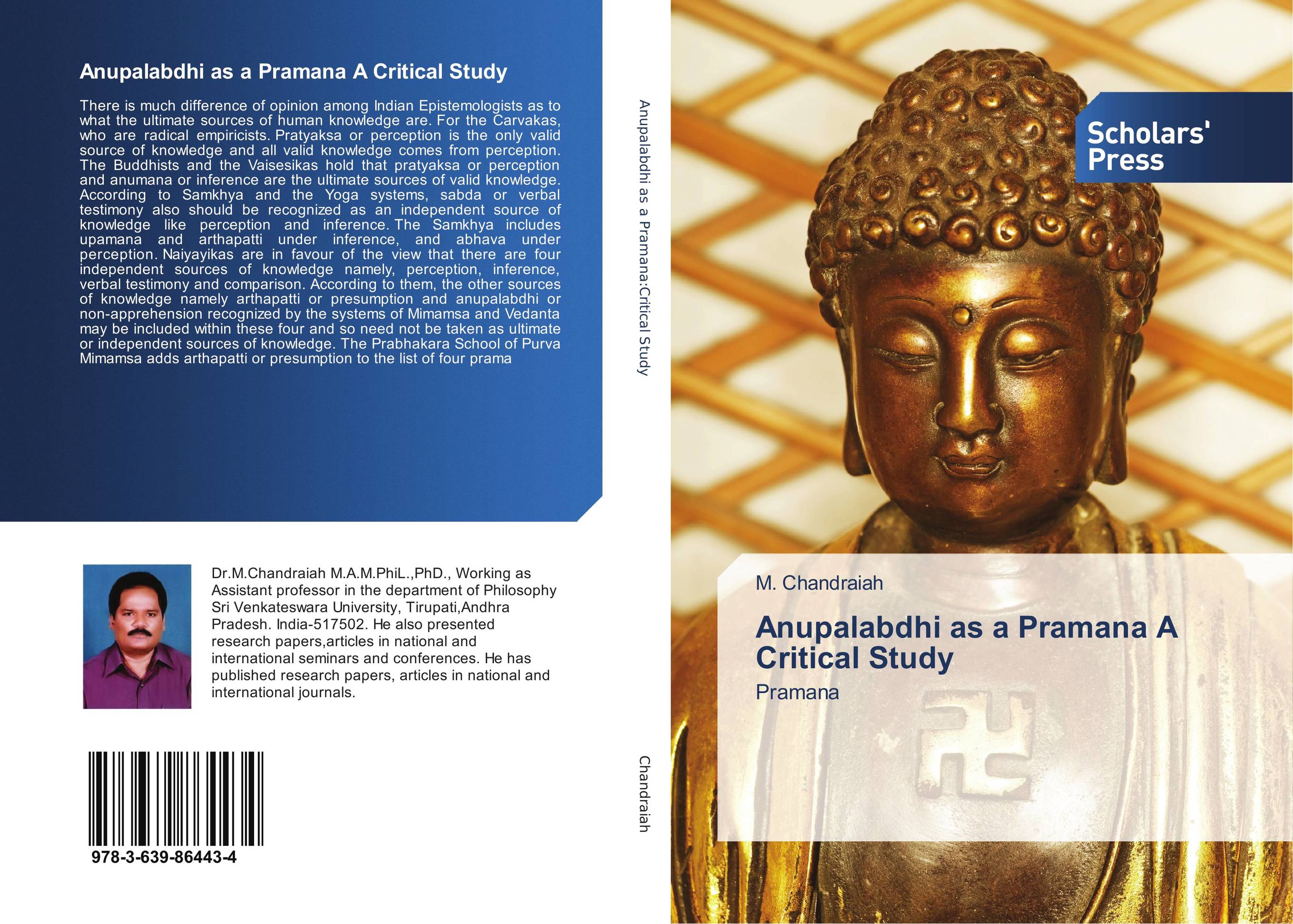| Поиск по каталогу |
|
(строгое соответствие)
|
- Профессиональная
- Научно-популярная
- Художественная
- Публицистика
- Детская
- Искусство
- Хобби, семья, дом
- Спорт
- Путеводители
- Блокноты, тетради, открытки
Anupalabdhi as a Pramana A Critical Study. Pramana

В наличии
| Местонахождение: Алматы | Состояние экземпляра: новый |

Бумажная
версия
версия
Автор: M. Chandraiah
ISBN: 9783639864434
Год издания: 2016
Формат книги: 60×90/16 (145×215 мм)
Количество страниц: 196
Издательство: Scholars' Press
Цена: 47399 тг
Положить в корзину
| Способы доставки в город Алматы * комплектация (срок до отгрузки) не более 2 рабочих дней |
| Самовывоз из города Алматы (пункты самовывоза партнёра CDEK) |
| Курьерская доставка CDEK из города Москва |
| Доставка Почтой России из города Москва |
Аннотация: There is much difference of opinion among Indian Epistemologists as to what the ultimate sources of human knowledge are. For the Carvakas, who are radical empiricists. Pratyaksa or perception is the only valid source of knowledge and all valid knowledge comes from perception. The Buddhists and the Vaisesikas hold that pratyaksa or perception and anumana or inference are the ultimate sources of valid knowledge. According to Samkhya and the Yoga systems, sabda or verbal testimony also should be recognized as an independent source of knowledge like perception and inference. The Samkhya includes upamana and arthapatti under inference, and abhava under perception. Naiyayikas are in favour of the view that there are four independent sources of knowledge namely, perception, inference, verbal testimony and comparison. According to them, the other sources of knowledge namely arthapatti or presumption and anupalabdhi or non-apprehension recognized by the systems of Mimamsa and Vedanta may be included within these four and so need not be taken as ultimate or independent sources of knowledge. The Prabhakara School of Purva Mimamsa adds arthapatti or presumption to the list of four prama
Ключевые слова: Anupalabdhi, Pramana, Critical Study



